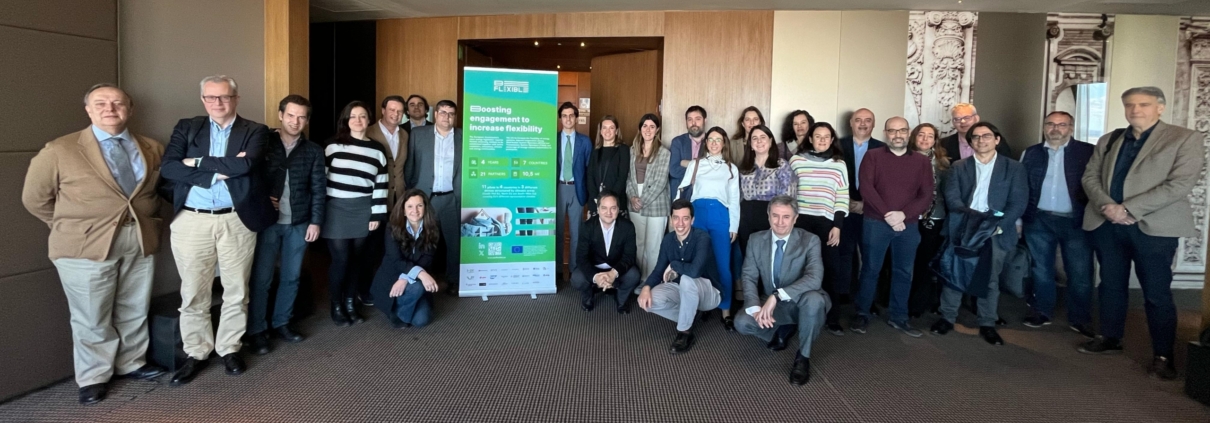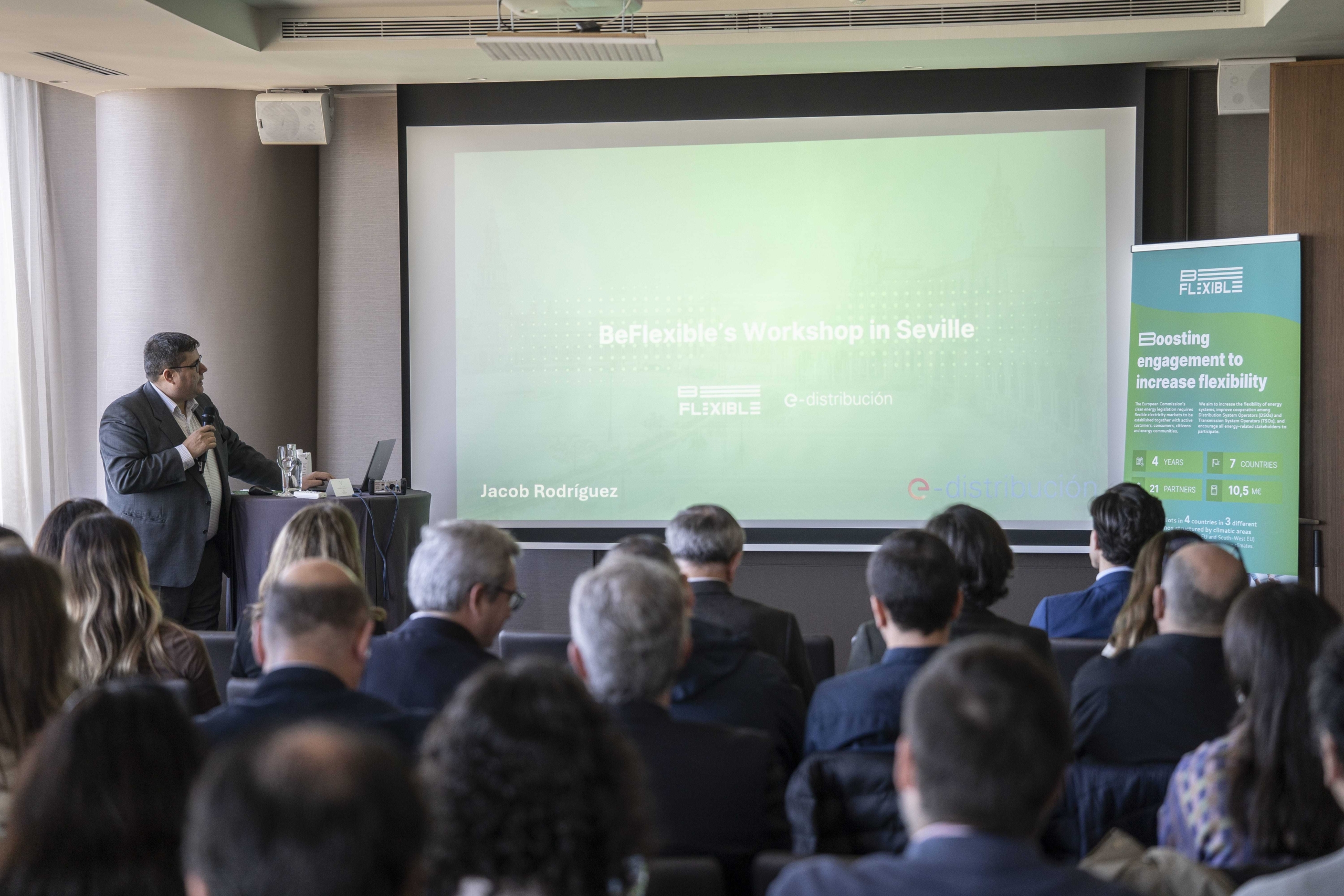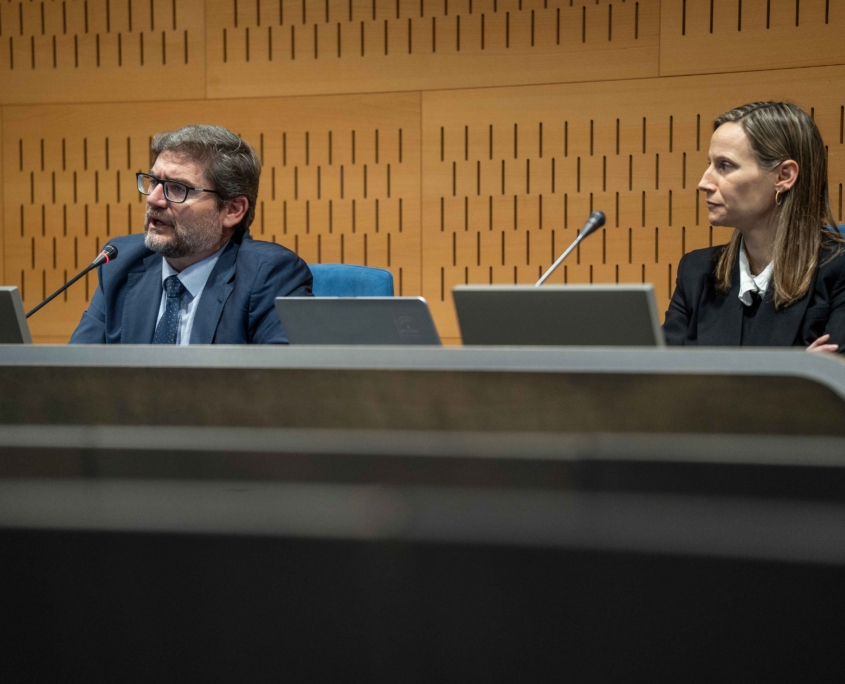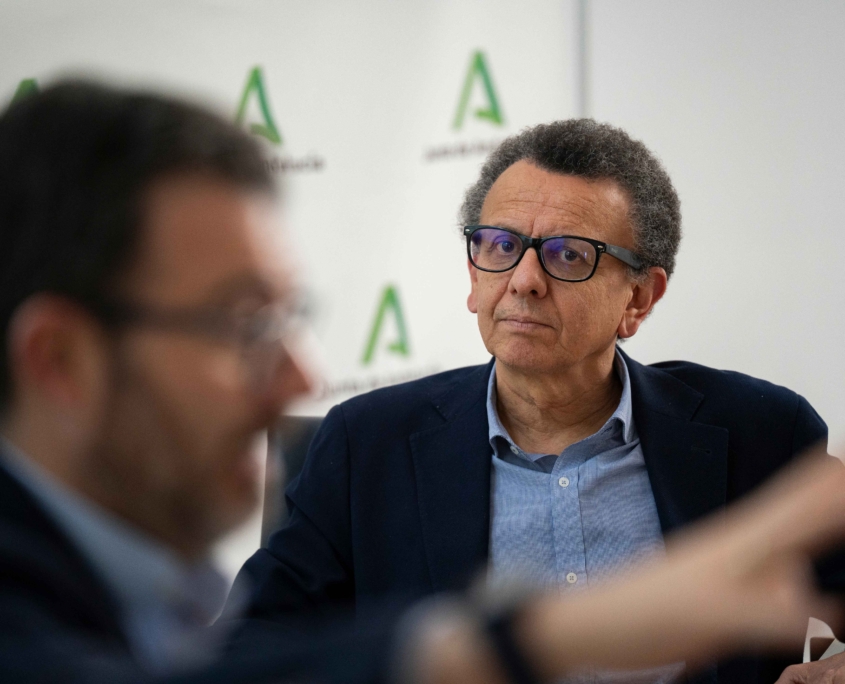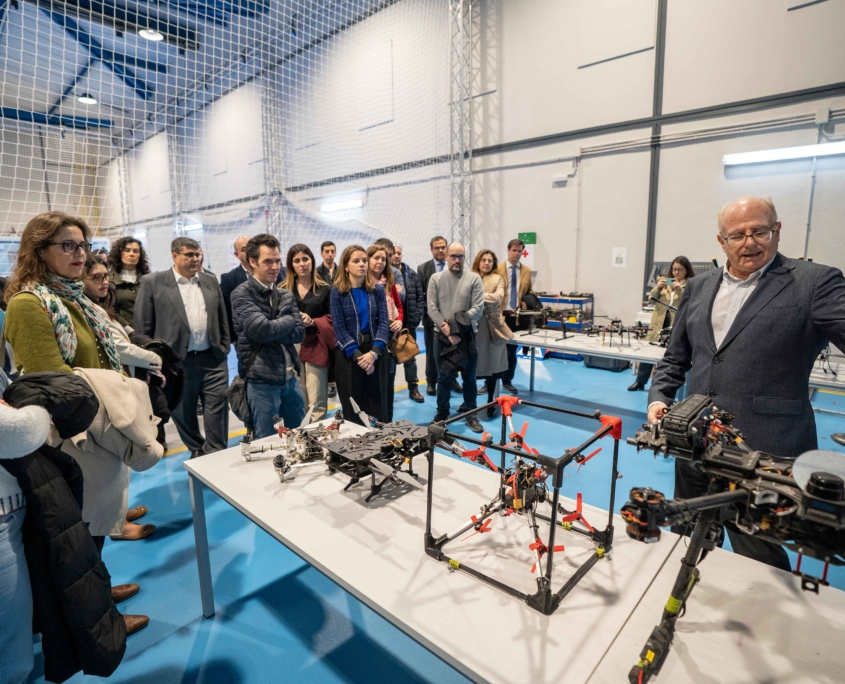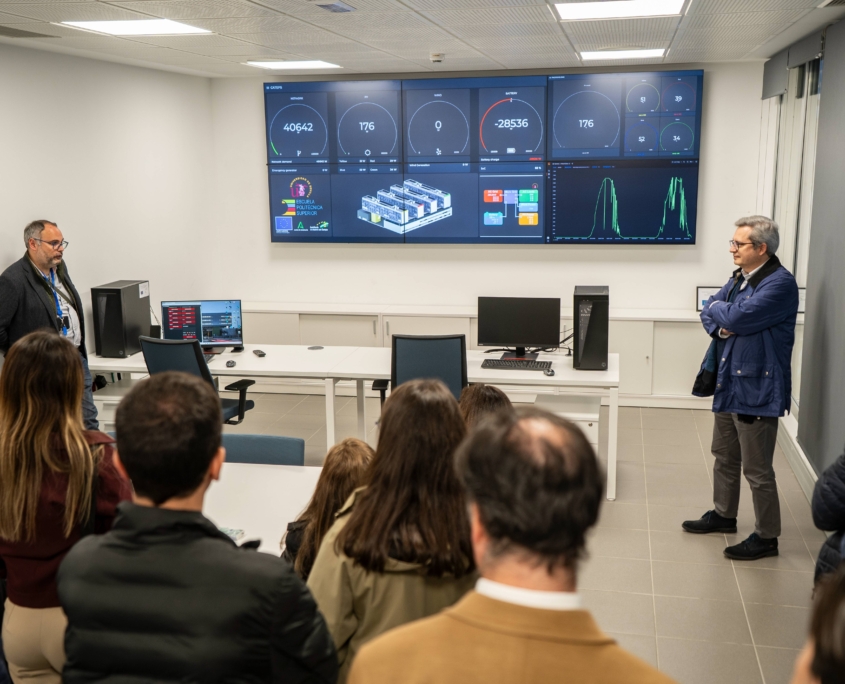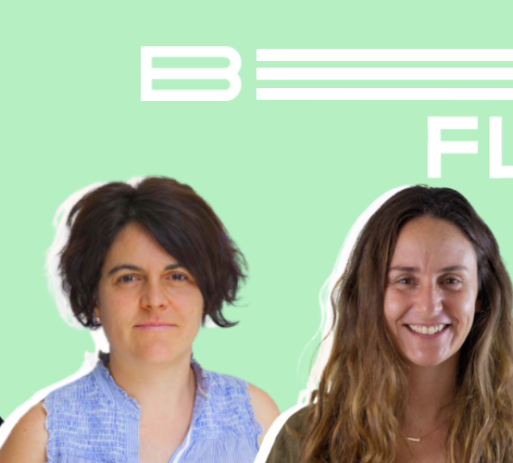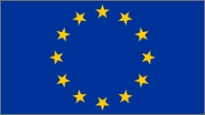A smarter energy future: BeFlexible workshop showcases key advances in grid flexibility
The workshop brought together experts to discuss the challenges and opportunities of flexible energy management in networks and future steps, from the analysis of the regulatory framework to showcasing progress in the BeFlexible’s demos from Spain, Italy, and France.
On March 25-26, the Island of Cartuja in Seville (Spain) became a key hub for around 40 professionals, industry leaders, and companies in the Spanish energy sector. This event provided a platform to present the latest technologies and innovations developed within the framework of the BeFlexible project.
Organised by e-distribución, Endesa’s grid subsidiary, the two-day event included technical visits to some of the most innovative buildings on Isla de la Cartuja. Highlights featured the Marie-Curie Tech Incubator, with insights from Eva Martín (PCT Cartuja) and Juan Manuel Rosauro (Endesa), as well as a presentation by Aníbal Ollero from AICIA – Andalusian Association for Research and Industrial Cooperation. The Andalusian Energy Agency, represented by José Manuel Torres, and CATEPS (University of Seville), led by Carlos León de Mora, also shared their energy management practices in these buildings.
The second day took place at the iconic “Torre Sevilla”, where a dedicated workshop highlighted advancements in several flexibility project demonstrators, as well as key discussions on platform integration, regulatory aspects, and market flexibility solutions.
Key takeaways from the workshop
The workshop took place at a crucial moment for BeFlexible, marking two and a half years since the project’s inception. As BeFlexible enters a critical phase of expanding and finalizing demonstration activities, this period is essential for implementation, impact assessment, and results analysis. The event provided a stage to present progress in pilot projects across Seville, Bilbao, Benidorm, and Madrid (Spain), Rome and Cuneo (Italy), and France. Various project partners discussed key developments during the journey.
The session at “Torre Sevilla” began with a warm welcome by Jacob Rodríguez (e-distribución), who introduced the agenda for the workshop. Afterward, Ana Báscones from Zabala Innovation took the floor to outline the project’s scope, objectives, and key technical advancements including: a comprehensive regulatory framework analysis to identify challenges and propose measures for effective flexibility deployment, the development of 13 Business Use Cases (BUCs) being applied to pilot projects, a tailored strategy based on Actor-Network Theory (ANT), the creation of a value proposition tool to support demonstrations, a regulatory framework ensuring compliance and ethical integrity and the design of the GDBN (Grid and Data Business Network) and the definition of its services.
Following this, Jacob Rodríguez presented technical insights on the pilot project implemented at the “Teatro Central” in Isla de la Cartuja (Sevilla). In collaboration with ThermoVault and the Andalusian Government, e-distribución has deployed 17 smart metering devices in electric water heaters at the “Teatro Central” in Seville. These devices optimize energy consumption using an AI model that adjusts usage based on actual needs. Recently, the project expanded to residential areas in Seville, where 17 additional electric water heaters have been installed across various neighbourhoods in the same city.
Moving forward, Carolina Manaresi (ENEL) introduced Pilots 1.1 (Rome) and 1.2 (Cuneo), both in Italy, which focus on network congestion management. She also presented insights from the Italian demonstrator regarding the coordination of flexibility services provided by distributed resources in both global and local markets. The session featured case studies on utilizing water distribution networks to provide flexibility services, addressing grid challenges while highlighting their key strengths and limitations
Afterward, Beatriz Alonso and David Martín Utrilla and (i-DE) discussed Iberdrola’s demonstrators, analysing the short- and long-term needs of distribution system operators. Their presentation focused on both short- and long-term strategies for network reinforcement and flexibility, incorporating a cost-benefit analysis to evaluate their effectiveness. Additionally, they covered pilot projects in Bilbao (focused on public buildings and battery storage), Madrid, and Benidorm (both targeting residential customers)
Continuing with the technical presentations, José Villar (INESC TEC) delved into integration platforms, specifically discussing the GDBN (Grid and Data Business Network)—a digital platform designed to support key stages of the energy and multi-sectoral value chain centred on flexibility (FCVC). Its main objective is to optimize processes and contractual agreements, enhancing participation and unlocking access to flexibility markets.
Subsequently, Pau Lloret (ThermoVault) addressed the growing concern over energy efficiency and the rising costs of balancing energy demand. He presented ThermoVault’s innovative solution: using aggregated water heaters as storage assets to provide flexibility services. Pau detailed ThermoVault’s involvement in pilot projects in Seville (Spain) and France. Miguel Ángel Ruiz (Pontifical University of Comillas) then provided an in-depth analysis of regulatory aspects in the energy sector, focusing on remuneration models and European policies. BeFlexible continues to explore regulatory frameworks to enable flexibility, as a flexible grid is understood to be much more efficient.
To conclude the workshop, Daniel Davi (e-distribución) presented the European Map of Flexibility, emphasizing key highlights and investment needs in electricity grids within the Action Plan for Affordable Energy. Daniel concluded by stating that European projects like BeFlexible serve as excellent testing grounds for the efficient implementation of flexibility in the European power system.
Insights from expert voices and the path forward for BeFlexible
The workshop also welcomed guest experts. Carlos León de Mora (University of Seville) introduced advancements from 35 research and development projects conducted over the past five years in collaboration with industry partners. These projects cover photovoltaic and wind energy generation, as well as battery storage solutions. Participants visited these installations, where León provided first-hand insights into their operation and impact. Additionally, Daniel Morales (Ingelectus) provided a detailed explanation of flexibility in distribution networks, emphasizing the role of digital twins in achieving full network observability. The closing of the event featured Rafael Sánchez Durán, General Director of Andalucía and Extremadura, who addressed the major challenge of making flexibility economically attractive.
The workshop created a platform for knowledge sharing, thanks to the support of e-distribución’s Institutional Relations team in Andalucía. It provided valuable insights into ongoing demonstrators, best practices from other initiatives such as the eCitySevilla project, demonstrating that there are technologies available to make electrical grids more flexible, and opportunities for knowledge sharing. This space for sharing insights has been made possible thanks to the support of the Institutional Relations team from Andalucía at e-distribución.
As BeFlexible moves toward its conclusion in August 2026, BeFlexible remains committed to placing consumers at the heart of flexibility solutions. Reflecting on the future, project coordinator David Martín emphasized:
“BeFlexible is about the flexibility that consumers bring to the system. The project’s legacy will be to engage customers and aggregators, as they will provide liquidity to the market—making it crucial to put them at the core of the project”.

